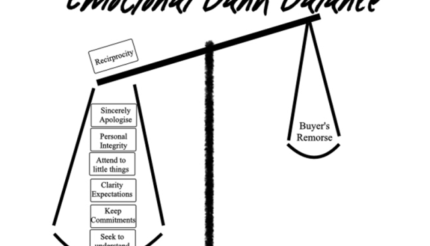What does it mean to be a salesperson and a good listener? When you are trying to sell your products or services to customers, you are trying to meet their needs as well as promote your work. And the three steps towards this are curiosity, empathy and courage.
Master of influence and persuasion, Phil M Jones joined us for the Big Friday Finish to discuss the importance of listening and empathy and how best to utilise them as a salesperson. Phil is a motivational business speaker based in New York and has delivered over 2,500 presentations, in over 800 different industries, spanning over 50 countries and 5 continents. Here are the main points he covered:
Curiosity
When listening to other people, it is important to let them take the lead, and that means maintaining a curious mindset. Don’t listen purely for the sake of coming up with a response. You are not directing; you are seeking to learn and understand, and this will lead you towards empathy.
Empathy
To empathise is to care about what the other person cares about. You need to show that you know where they are coming from, so that it is no longer you vs. them, but you and them vs. their problem. When you make them feel heard, you establish a bond and a sense of trust, and that makes them more likely to take an interest in what you have to offer.
Courage
One of the most common obstacles to promoting something to someone else is fear of rejection. According to Phil, we are socially conditioned to be afraid to ask. Unfortunately, rejection is impossible to avoid. The thing to remember is that if a potential customer says no, they are saying no to what you are promoting, not to you as an individual. And if you never ask, you will never get.
What motivates people
There are three main things that drive people to act: incentive, fear and self-motivation. Incentives work sometimes. Fear works more. And self-motivation works all the time. People want to know what to do without being pushed. When a customer makes their own informed decision to accept what you are offering and are satisfied with the outcome, they develop a stronger sense of customer loyalty than if they feel pressured. Decisions start with emotions rather than logic, so use people’s feelings to anchor a decision.
The trick to influencing potential customers without pushing them is to use the right language. This can involve:
- Reverse psychology e.g. “I’m not sure if it’s for you, but…” This will pique their curiosity and make them want to see for themselves if it’s for them.
- Imagination. Get them thinking and talking about what they would like to happen – or stop happening – if they accept. The subconscious mind cannot differentiate between reality and fiction, so by encouraging a potential client to imagine the outcome of their decision, you will help them decide faster.
- Don’t ask if they have any questions; ask instead, “what questions do you have for me?” That way, your language shifts from passive to active and gets them thinking instead of automatically ending the interaction.
To conclude, being a salesperson may come with a negative stereotype, but the fact is, we all have something to sell. Once you know how to listen and talk to people, you will be able to sell in a way that earns their trust and loyalty, as a person who can deliver what they need.
If you want to better understand how to influence your clients and customers, you can watch the full webinar here.







Your article gave me a lot of inspiration, I hope you can explain your point of view in more detail, because I have some doubts, thank you.
Your article helped me a lot, is there any more related content? Thanks! https://accounts.binance.com/de-CH/register-person?ref=T7KCZASX